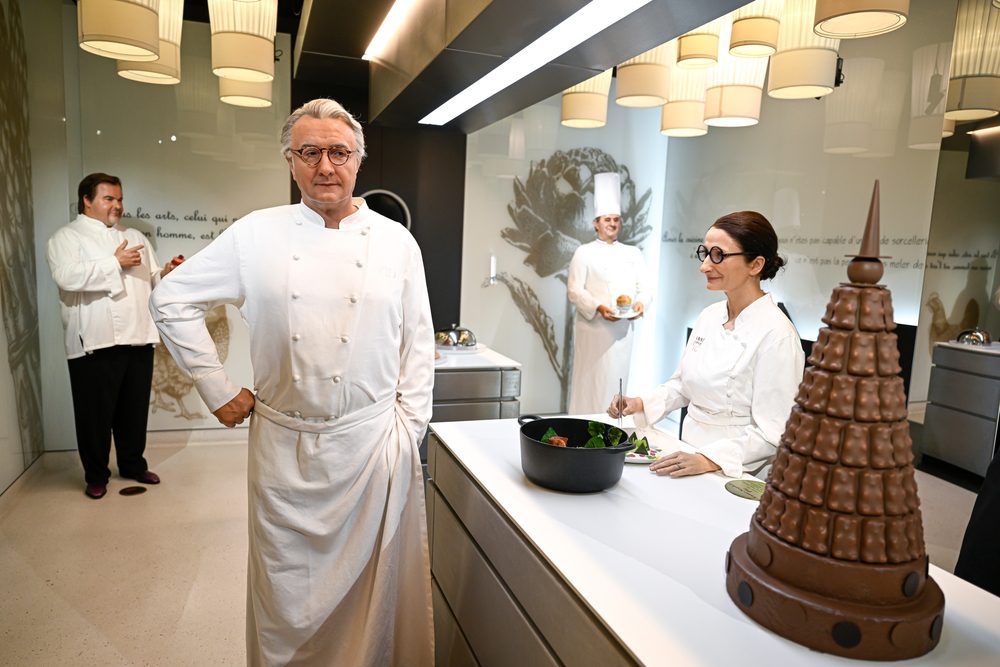Executive Summary
The Story So Far
Why This Matters
Who Thinks What?
While the concept of a single “richest chef in the world” dominating global wealth lists alongside tech magnates and industrial titans is largely a myth, the culinary industry has indeed birthed numerous highly successful individuals who have amassed significant fortunes. These culinary entrepreneurs have transformed their passion for food into vast business empires, leveraging talent, media savvy, and shrewd financial strategies to build wealth far beyond the confines of a single kitchen. Their success stories offer a blueprint for aspiring chefs and business professionals alike, demonstrating that a “recipe for success” in the culinary world extends well beyond exceptional cooking.
The Culinary Path to Riches: More Than Just Cooking
Becoming a wealthy chef involves a multifaceted approach that transcends the traditional image of a chef toiling in a kitchen. While culinary prowess is foundational, it is the strategic application of business acumen, brand building, and diversification that truly unlocks significant financial success.
Mastering the Craft and Earning Acclaim
The journey often begins with an unwavering commitment to culinary excellence. Chefs like Alain Ducasse, with his constellation of Michelin stars, exemplify how unparalleled skill and innovation in the kitchen can establish a chef’s reputation. This critical foundation of quality and creativity attracts discerning diners and critical acclaim, which in turn provides the necessary credibility to expand.
Earning prestigious awards and recognition, such as Michelin stars or James Beard Awards, serves as a powerful marketing tool. This validates a chef’s expertise and elevates their status, opening doors to more lucrative opportunities. It transforms a chef from a skilled cook into a recognized authority in the culinary landscape.
Building a Brand Beyond the Plate
True wealth generation for chefs often pivots on the ability to transform personal culinary skill into a recognizable brand. Gordon Ramsay, for instance, has cultivated a distinct personality that resonates with audiences globally, making his name synonymous with high standards and intense passion. This brand persona is not accidental; it is carefully crafted and consistently reinforced across all ventures.
A strong brand allows chefs to transcend the physical limitations of a single restaurant. It creates a loyal following that is eager to engage with their culinary philosophy, whether through dining experiences, media content, or consumer products. This brand equity becomes a valuable asset that can be leveraged in numerous ways.
Diversification: The True Recipe for Wealth
The most successful chefs understand that relying solely on restaurant profits is rarely enough to achieve extraordinary wealth. Diversification across multiple revenue streams is the cornerstone of their financial empires.
Media Empires: Television, Books, and Digital Content
Television appearances and cooking shows have proven to be incredibly lucrative avenues for chefs. Jamie Oliver, with his extensive television career and numerous best-selling cookbooks, demonstrates how media exposure can convert culinary expertise into mass market appeal and substantial royalties. These platforms allow chefs to reach millions, far beyond the capacity of any restaurant.
Beyond traditional media, digital platforms, including social media, YouTube channels, and online cooking classes, offer new frontiers for brand engagement and monetization. Chefs can build direct relationships with their audience, offering exclusive content and leveraging their influence for endorsements and advertising revenue. This digital presence is crucial for maintaining relevance in a rapidly evolving media landscape.
Product Lines and Retail Ventures
Extending a chef’s brand into consumer products is another powerful strategy for wealth creation. Wolfgang Puck, a pioneer in this space, has built an empire that includes not only restaurants but also frozen foods, cookware, and coffee products available in supermarkets worldwide. These retail ventures provide passive income streams and significantly broaden the brand’s reach.
From branded spices and sauces to kitchen gadgets and meal kits, the possibilities for product diversification are vast. These products allow consumers to bring a piece of the chef’s culinary magic into their own homes, reinforcing brand loyalty and generating consistent revenue. Strategic partnerships with major retailers are key to scaling these operations.
Global Restaurant Chains and Hospitality Groups
While a single flagship restaurant might be the starting point, building a global portfolio of restaurants is a hallmark of the wealthiest chefs. Nobu Matsuhisa, co-founder of the Nobu empire, has expanded his unique culinary concept into dozens of locations worldwide, including hotels. This global footprint allows for significant economies of scale and market penetration.
Franchising and licensing models can further accelerate growth without requiring direct capital investment for every new location. By leveraging the brand and established operational systems, chefs can expand their restaurant presence exponentially, generating significant royalties and management fees. This strategic expansion transforms a chef into a hospitality magnate.
Strategic Business Acumen and Financial Literacy
Behind every incredibly wealthy chef is a sharp business mind, either their own or that of a trusted team. Culinary talent alone, without sound financial management and strategic planning, rarely leads to lasting wealth.
Scaling Operations and Franchising
Understanding how to scale a successful concept is paramount. This involves developing robust operational procedures, supply chain management, and quality control mechanisms that can be replicated across multiple locations. Franchising offers a powerful model for rapid expansion, allowing a chef to leverage other entrepreneurs’ capital and local market knowledge.
Effective management of human resources, from hiring skilled staff to fostering talent, is also critical. A strong team allows the chef to delegate operational responsibilities and focus on strategic growth and brand development, rather than being tied to the daily grind of a single kitchen.
Astute Investments and Partnerships
Successful chefs often reinvest their earnings wisely, diversifying their personal portfolios beyond the culinary world. This might include real estate, technology startups, or other ventures that provide additional income streams and protect against market fluctuations. Strategic partnerships with investors and business experts are also crucial for securing capital and guidance for growth.
Negotiating favorable deals, understanding intellectual property rights, and managing complex financial structures are all part of the business landscape. The ability to identify opportunities for growth and to execute on them with precision separates the merely successful from the truly wealthy.
The Role of Innovation and Adaptability
The culinary world is constantly evolving, and the wealthiest chefs are those who remain at the forefront of innovation and are highly adaptable to changing tastes and technologies.
Evolving with Consumer Tastes
Chefs who achieve lasting success are not static; they continuously evolve their menus, concepts, and approaches to dining. They pay close attention to food trends, dietary preferences, and sustainability concerns, ensuring their offerings remain relevant and appealing to a broad audience. This responsiveness is vital for maintaining a competitive edge.
Innovation isn’t just about new dishes; it’s about new dining experiences, delivery models, and even how food is sourced. Staying ahead of the curve ensures continued customer engagement and market share.
Embracing New Technologies
From online reservation systems and food delivery apps to sophisticated kitchen equipment and data analytics for customer insights, technology plays an increasingly vital role. Embracing these tools can enhance efficiency, improve customer service, and open new channels for revenue. Chefs who leverage technology effectively can optimize their operations and expand their reach.
Digital marketing and social media engagement are also non-negotiable in the modern era. A strong online presence is essential for brand building, direct customer communication, and driving traffic to restaurants and other ventures.
The Unseen Challenges and Hard Realities
Despite the glamorous image, the path to culinary wealth is fraught with significant challenges, including long hours, intense competition, and high failure rates. The hospitality industry is notoriously demanding, requiring immense dedication and resilience.
High Stakes and Intense Competition
The restaurant business is highly competitive, with new establishments opening and closing frequently. Maintaining relevance and profitability requires constant innovation, meticulous attention to detail, and efficient cost management. The stakes are always high, and missteps can be costly.
Maintaining Quality and Reputation
As chefs expand their empires, maintaining consistent quality across all ventures becomes a significant challenge. Any slip in standards can quickly tarnish a hard-earned reputation, impacting all aspects of the brand. Vigilant oversight and strong leadership are essential to uphold the brand’s integrity.
Ultimately, while no single chef may claim the title of the world’s absolute richest person, a select group has indeed achieved extraordinary financial success by transforming culinary talent into expansive business ventures. Their “recipe for success” combines exceptional cooking with astute entrepreneurship, strategic diversification across media and product lines, and an unwavering commitment to brand building and adaptability. These culinary titans demonstrate that with the right blend of passion, perseverance, and business savvy, the kitchen can indeed be a springboard to immense wealth.








